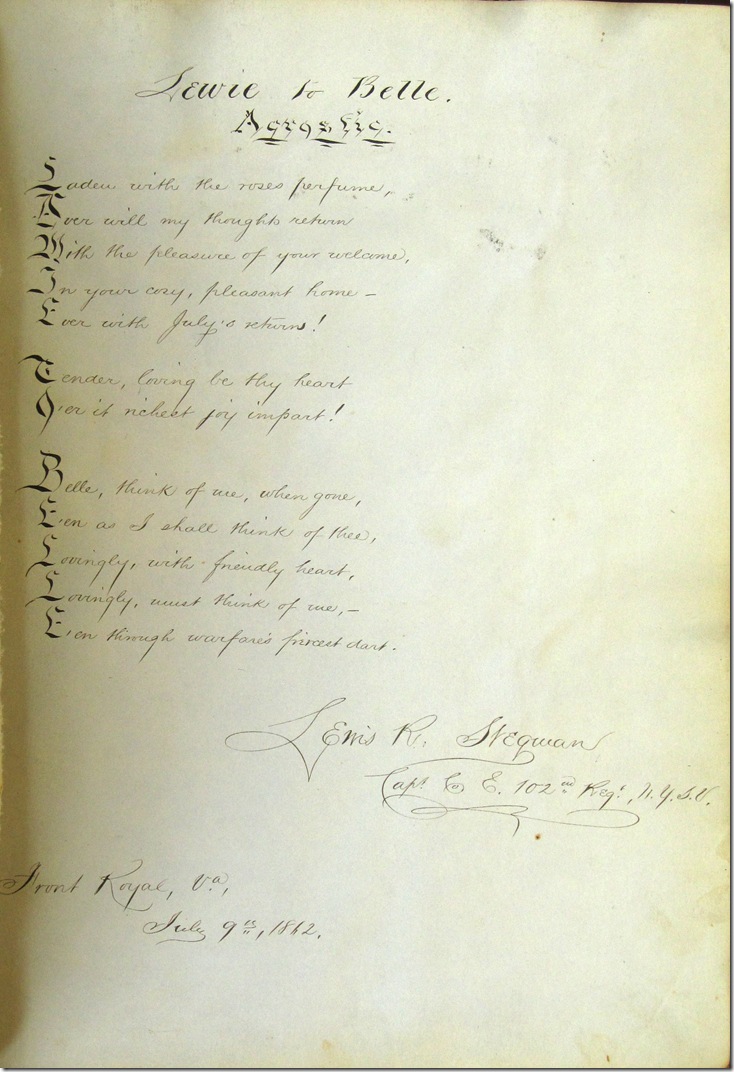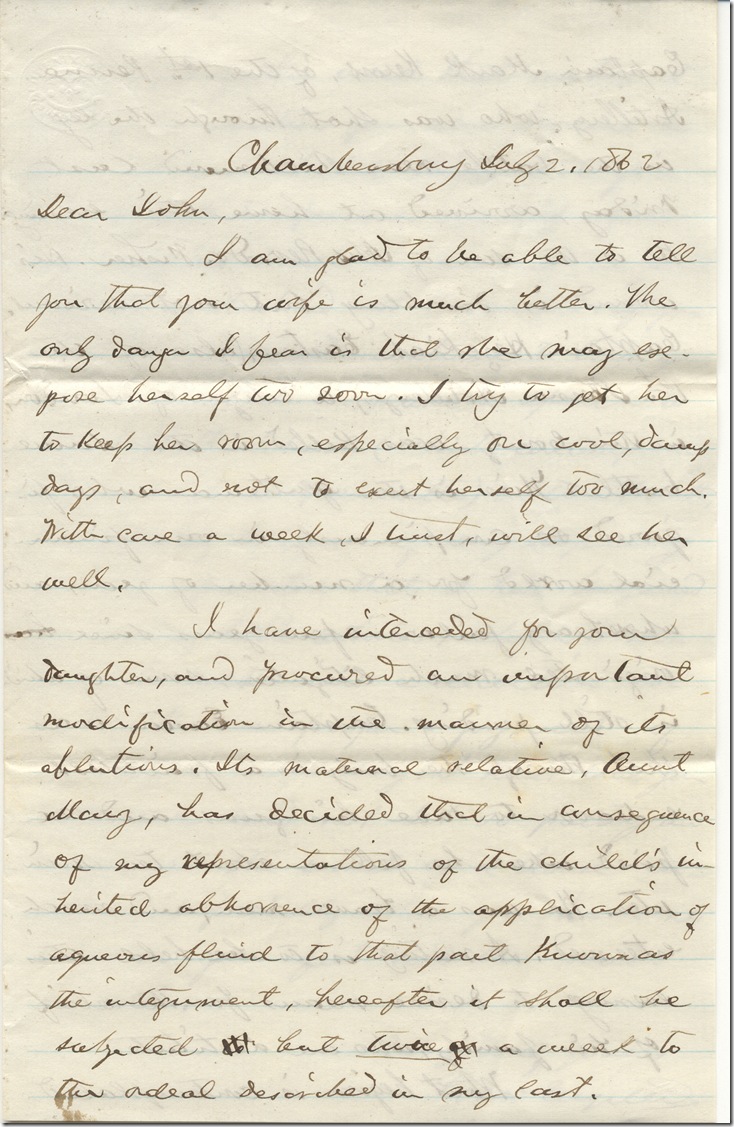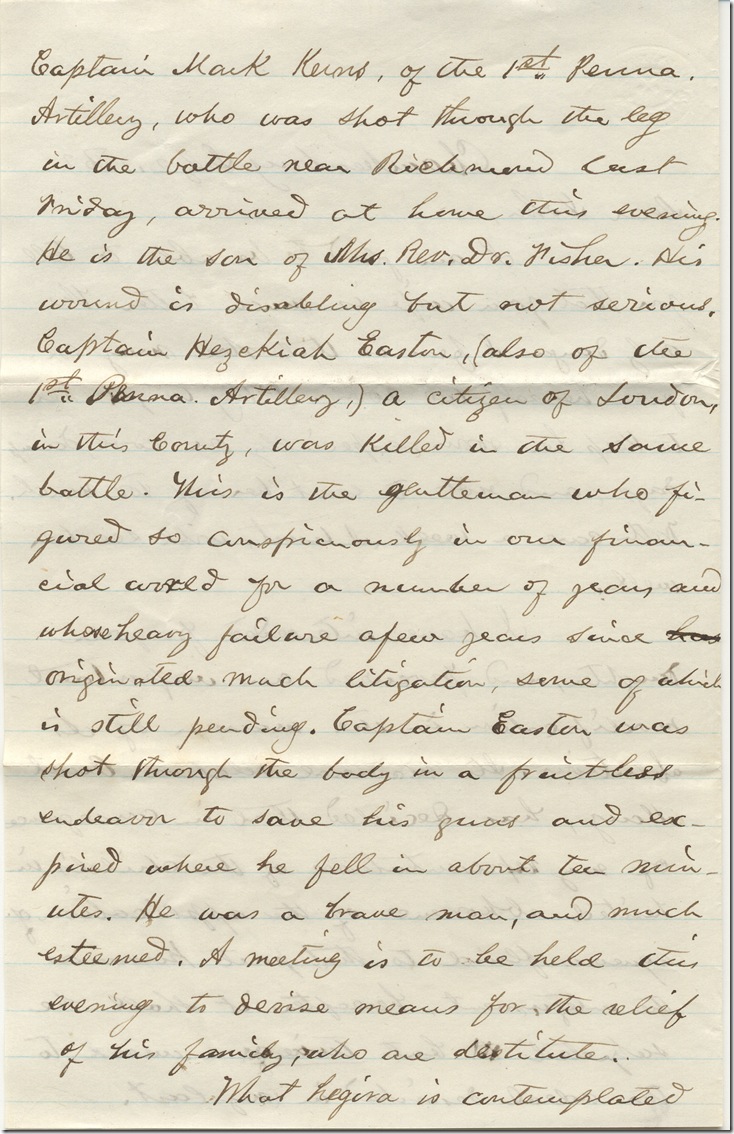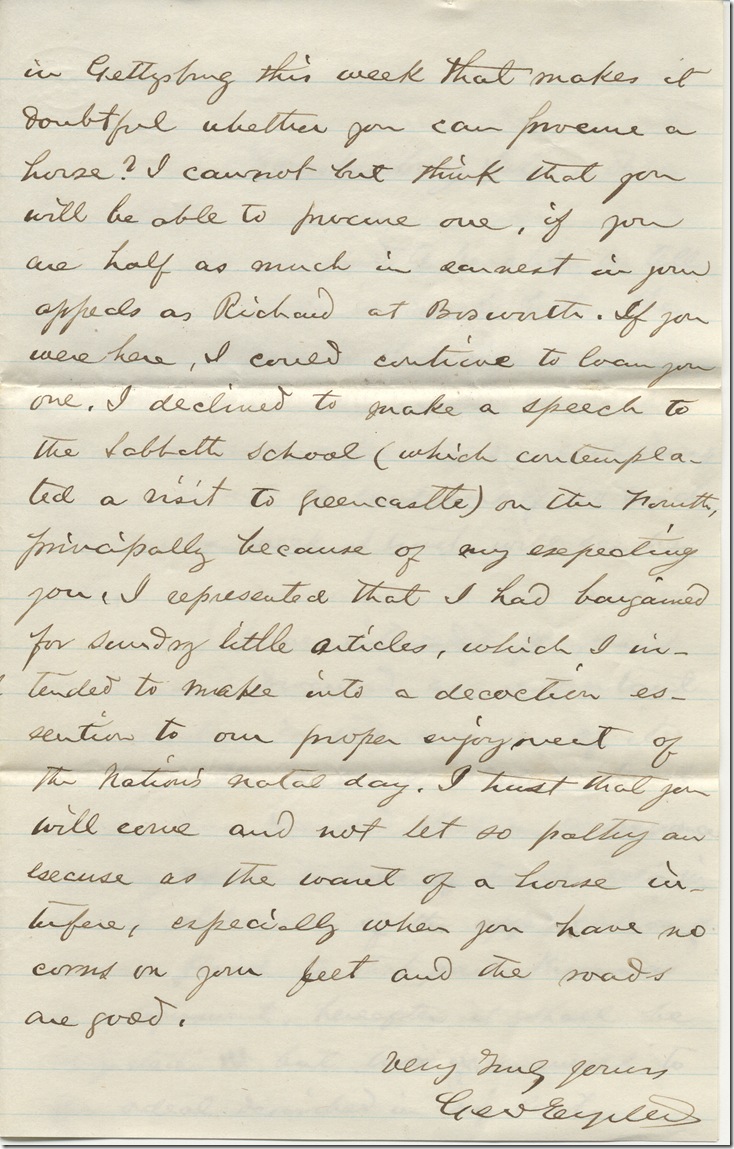This broadside is undated but is in response to President Lincoln’s July 2, 1862 call for 300,000 troops.
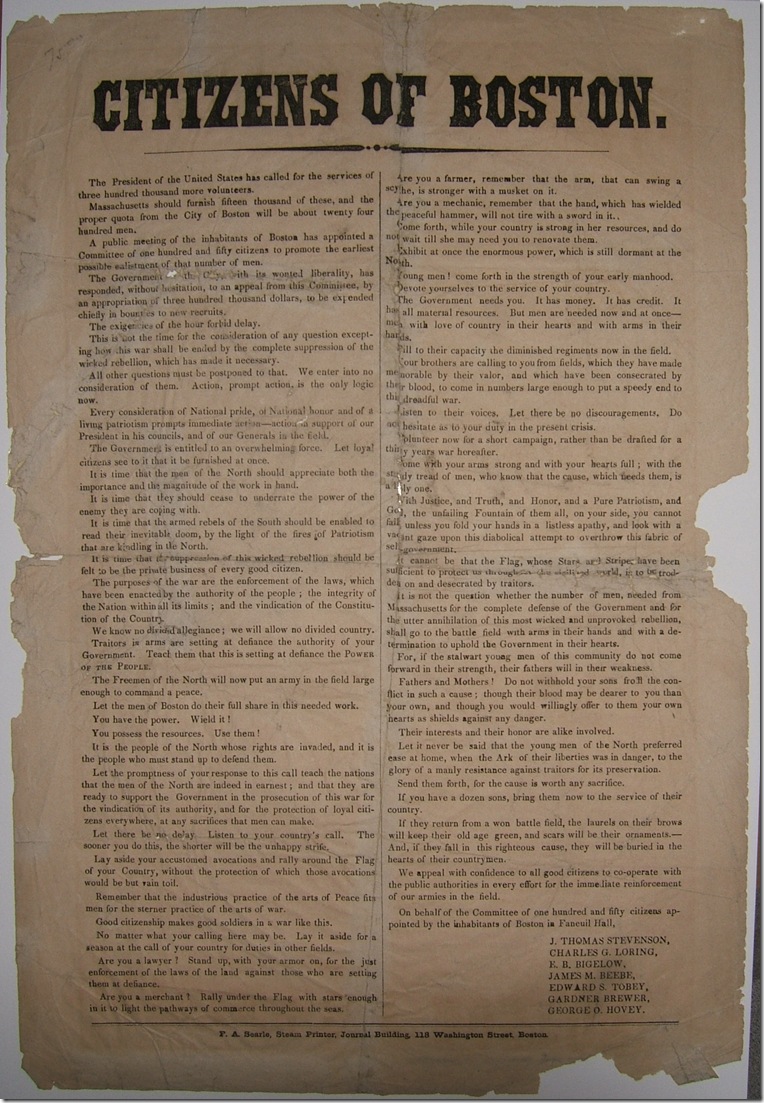
Transcript:
Citizens of Boston
The President of the Unites States has called for the services of three hundred thousand more volunteers.
Massachusetts should furnish fifteen thousand of these, and the proper quota from the City of Boston will be about twenty four hundred men.
A public meeting of the inhabitants of Boston has appointed a Committee of one hundred and fifty citizens to promote the earliest possible enlistment of that number of men.
The Government of the City, with its wonted liberality, has responded, without hesitation, to an appeal from this Committee, by an appropriation of three hundred thousand dollars, to be expended chiefly in bounties to new recruits.
The exigencies of the jour forbid delay.
This is not the time for the consideration of any question excepting how this war shall be ended by the complete suppression of the wicked rebellion, which has made it necessary.
All other questions must be postponed to that. We enter into no consideration of them. Action, prompt action, is the only logic now.
Every consideration of National pride, of National honor and of a living patriotism prompts immediate action-action in support of our President in his councils, and of our Generals in the field.
The Government is entitled to an overwhelming force. Let loyal citizens see to it that it be furnished at once.
It is time that the men of the North should appreciate both the importance and the magnitude of the work in hand.
It is time that they should cease to underrate the power of the enemy they are coping with.
It is time that the armed rebels of the South should be enabled to read their inevitable doom, by the light of the fires of Patriotism that are kindling in the North.
It is time that the suppression of this wicked rebellion should be felt to be the private business of every good citizen.
The purpose of the war are the enforcement of the laws, which have been enacted by the authority of the people; the integrity of the Nation within all its limits; and the vindication of the Constitution of the County.
We know no divided allegiance; we will allow no divided country,
Traitors in arms are setting at defiance the authority of your Government. Teach them that this is setting a defiance of Power of the People.
The Freemen of the North will now put an army in the fields large enough to command a peace.
Let the men of Boston do their full share in this needed work.
You have the power. Wield it!
You possess the resources. Use them!
It is the people of the North whose rights are invaded, and it is the people who must stand up to defend them.
Let the promptness of your response to this call teach the nations that the men of the North are indeed in earnest; and that they are ready to support the Government in the prosecution of this way for the vindication of its authority, and for the protection of loyal citizens everywhere, at any sacrifices that men can make.
Let there be no delay. Listen to your country’s call. The sooner you do this, the shorter will be the unhappy strife.
Lay aside your accustomed avocations and rally around the Flag of your country, without the protection of which those avocations would be but vain toil.
Remember that the industrious practice of the arts of Peace fits men for the sterner practice of the arts of war.
Good citizenship makes good soldiers in a war like this.
No matter what tour calling here may be. Lay it aside for a season at the call of your country for duties in other fields.
Are you a lawyer? Stand up, with tour armor on, for the just enforcement of the laws of the land against those who are setting them at defiance.
Are you a merchant? Rally under the Flag with stars enough in it to light the pathways of commerce throughout the seas.
Are you a farmer, remember that the arm, that can swing a scythe, is stronger with a musket on it.
Are you a mechanic, remember that the hand, which has wielded the peaceful hammer, will not tire with a sword in it.
Come forth, while tour country is strong in her resources, and do not wait till she may need you to renovate them.
Exhibit at once the enormous power, which is still dormant at the North.
Young men! Come forth in the strength of your early manhood. Devote yourselves to the service of your country.
The Government needs you. It has credit. It has all material resources. But men are needed now and at once-men with love of country in their hearts and with arms in their hands. Will to their capacity the diminished regiments now in the field. Your brothers are calling you from fields, which they have made memorable by their valor, and which have been consecrated by their blood, to come in numbers large enough to put a speedy end to this dreadful war.
Listen to their voices. Let there be no discouragements. Do not hesitate as to your duty in the present crisis.
Volunteer now for a short campaign, rather than be drafted for thirty years hereafter.
Come with your arms strong and with tour hearts full; with the steady tread of men, who know that the cause, which needs them, is a holy one.
With justice, and Truth and Honor, and a Pure Patriotism, and God, the unfailing Fountains of them all, on your side, you cannot fail unless you fold your hands in a listless apathy and look with a vacant gaze upon this diabolical attempt to overthrow this fabric of self-government.
It cannot be that the Flag, whose Stars and Stripes have been sufficient to protect us through the civilized world, is to be trodden upon and desecrated by traitors.
It is not the question whether the number of men, needed from Massachusetts for the complete defense of the Government and for the utter annihilation of this most wicked an unprovoked rebellion, shall go to the battle field with arms in their hands and with a determination to uphold the Government in their hearts.
For, if the stalwart young men of this community do not come forward in their strength, their fathers will in their weakness.
Fathers and Mothers! Do not withhold your sons from the conflict in such a cause; though their blood may be dearer to you than your own, and though you would willingly offer them your own hearts as shield against any danger.
Their interests and their honor are alike involved.
Let it never be said that young me of the North preferred ease at home, when the Ark of their liberties was in danger, to the glory of a manly resistance against traitors for its preservation
Send them forth, for the cause is worth any sacrifice.
If you have a dozen sons, bring them now to the service if their country.
If they return from a won battlefield, the laurels on their brows will keep their old age green, and scars will be their ornaments.-And, if they fall in the righteous cause, they will be buried in the hearts of their countrymen.
We appeal the confidence to all good citizens to co-operate with the public authorities in every effort for the immediate reinforcement of our armies in the field.
On behalf of the Committee of one hundred and fifty citizens appointed by the inhabitants of Boston in Faneuil Hall,
J. Thomas Stevenson,
Charles G. Loring,
E.B. Bigelow
James M. Beebe,
Edward S. Tobey,
Gardner Brewer,
George O. Hovey.
Citation: Citizens of Boston. Boston, F. A. Searle, [1862]. A 862ci
